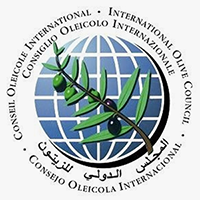It has been demonstrated that olive oil has an effect in preventing the formation of blood clots and platelet aggregation.
Olive Oil rich diet, can avoid excessive blood coagulation because it attenuates the effect of fatty foods that can lead to heart attacks.
Countries that use olive oil as the principal source of fat consumed, have the lowest incidence of heart failure.
Olive oil is full of beneficial antioxidants that can lower LDL-Cholesterol and triglycerides while leaving HDL-Cholesterol untouched (and may even raise it), which can:
- Play a protective role.
- Prevent the formation of fatty patches.
- Stimulate the elimination of the low-density lipoproteins.
Regarding cardiovascular disease it has been demonstrated that the consumption of olive oil can:
In primary prevention, reduces the risk of developing the disease, and in secondary prevention, prevents recurrence after a first coronary event.
It has been demonstrated that the addition of olive oil to a diet has a clear lowering effect on blood pressure.
Regular consumption of olive oil decreases on both systolic (high) and diastolic (low) blood pressure.
People who adopt the Mediterranean-type diet are about 15% less likely to be affected by cancer.
According to epidemiological studies, olive oil plays a key role in protecting against certain malignant tumours: breast, prostate, endometrium, digestive tract, etc., because of its ability to kill cancer cells quickly.
An olive oil rich diet is not only a good alternative in the treatment of diabetes; it may also help to prevent or delay the onset of the disease for old ages, adults and children.
Olive oil is a nutrient of great biological value.
Experience shows that there is less obesity amongst the Mediterranean peoples, who mostly consume olive oil.
It has been demonstrated that an olive oil rich diet leads to greater and longer-lasting weight loss than a low-fat diet. It is accepted better because it tastes good and it is a stimulus to eat vegetables.
It has been documented that olive oil intake bolsters the immune system against external attacks from microorganisms, bacteria or viruses.
Rheumatoid arthritis is a chronic inflammatory immune disease of unknown causes that affects the joints.
Now, he results of a recently published study suggest a regular consumption of olive oil to reduce the risk of developing rheumatoid arthritis.
As soon as we consume olive oil it has a number of effects all the way along the digestive system.
Back to ancient times, it was recommended for assorted digestive disorders. Its beneficial properties are now being corroborated by epidemiological studies and a wealth of scientific data.
Olive oil plays a key role in foetal development during pregnancy and a shortage may have pernicious effects on the baby's subsequent development.
It has been demonstrated that the post-natal development of babies for mothers who consumed olive oil when pregnant is better in terms of height, weight, behaviour and psychomotor reflexes.
Olive oil appears to have a favourable effect on bone calcification, and bone mineralisation is better the more olive oil is consumed.
Olive oil rich diets may prevent memory loss in healthy elderly people.
Studies have observed that the quantity of olive oil consumed was inversely proportional to age-related cognitive decline and memory loss, dementia and Alzheimer's disease.
Olive oil has a large proportion of vitamins A, D and K, as well as vitamin E; the main source of protection against the free radicals that produce cell oxidation. This makes it a good aid in specific therapies to treat skin disorders such as acne, psoriasis and seborrheic eczemas.
It has also been suggested that because of its pronounced antioxidant effect, olive oil could prevent of continuous oxidation, one of the processes that influences the development of certain types of skin cancer.
